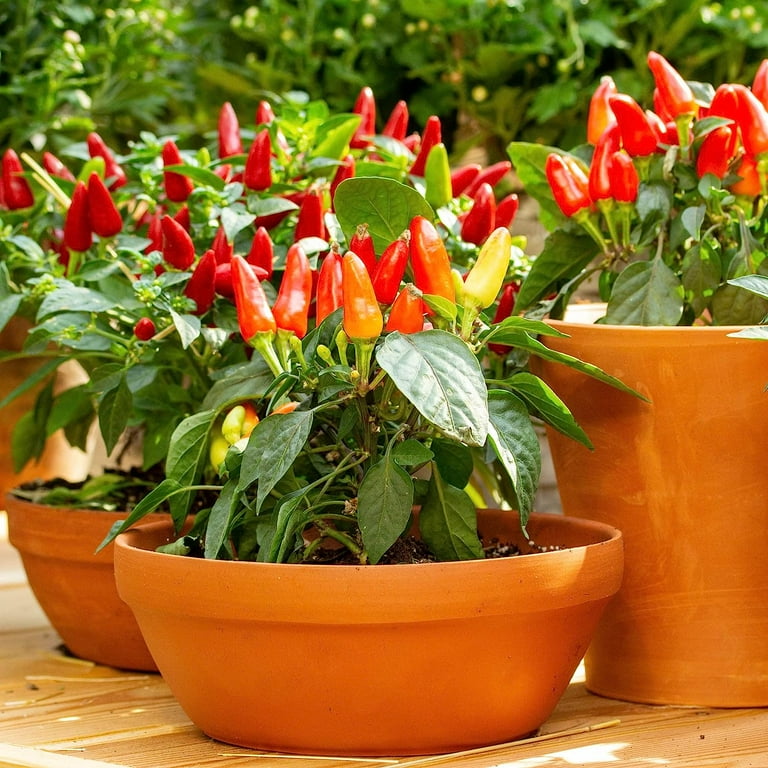Top-Rated Fertilizers for Peppers: Boost Your Harvest Quality
Top-Rated Fertilizers for Peppers: Boost Your Harvest Quality
Blog Article
The Ultimate Guide to Feeding Peppers: Enhancing Growth and Flavor Naturally
As pepper fanatics look for to grow durable plants generating delicious fruits, the function of fertilization ends up being critical in attaining these objectives. The journey to comprehending the intricate balance of nutrients that peppers need for ideal development and preference is a nuanced one. By exploring the benefits of all-natural fertilizers, unlocking the keys behind pepper plant nutrient needs, and delving into the realm of natural fertilizer alternatives, a world of opportunities emerges for enhancing the vitality and taste account of these beloved plants. Stay tuned to uncover the crucial methods and solutions that can boost your pepper-growing ventures to new elevations.
Advantages of Natural Plant Foods
Natural fertilizers provide an array of advantages that add to the overall wellness and performance of pepper plants. By enhancing the soil with organic matter, such as garden compost or manure, all-natural fertilizers improve its water retention capability and nutrient-holding capabilities, developing an extra welcoming atmosphere for pepper plants to flourish in.
Moreover, all-natural fertilizers sustain a energetic and varied dirt microbiome, fostering useful microbial activity that helps in nutrient recycling and uptake by the plants. This microbial activity can aid suppress damaging pathogens and illness, lowering the requirement for chemical interventions. In addition, natural plant foods promote long-lasting dirt health by preserving a well balanced community underground, which in turn supports the general health and wellness and resilience of pepper plants over ground.
Recognizing Pepper Plant Nutrient Requirements
Having developed the advantages of natural plant foods in boosting dirt health and wellness and advertising microbial task, the focus now shifts to comprehending the certain nutrient demands crucial for optimum growth and flavor in pepper plants.

Comprehending the specific nutrient requirements of pepper plants is important for attaining bountiful harvests with excellent taste. By giving the best equilibrium of nutrients via natural fertilizers or dirt modifications, cultivators can make sure healthy and balanced, strenuous plants that generate savory peppers throughout the expanding season.
Organic Fertilizer Options for Peppers
In enhancing the growth and taste of pepper plants, choosing the ideal organic fertilizers is a vital consideration. Organic plant foods provide a lasting and all-natural method to nurture pepper plants without introducing hazardous chemicals to the soil and environment.
One more reliable organic fertilizer for peppers is aged manure. Rich in nitrogen, phosphorus, and potassium, aged manure provides a balanced nutrient mix that supports energetic development and abundant fruit manufacturing (best fertilizers for peppers). It is essential to utilize well-aged manure to stop shedding the plants with excess ammonia
Fish emulsion is a fast-acting organic fertilizer that supplies pepper plants with page a quick increase of nutrients. Originated from fish waste, this plant food is high in nitrogen, making it especially beneficial during the onset of pepper plant development. Fish emulsion is very easy to apply and is conveniently absorbed by the plants, promoting healthy and balanced foliage and strong root development.
When selecting a natural plant food for peppers, take into consideration the details nutrient demands of your plants and choose choices that straighten with your gardening techniques and values.
Best Practices for Fertilizing Pepper Plants
Taking into consideration the significance of selecting ideal organic fertilizers for pepper plants, executing finest practices for fertilizing is important to guarantee ideal growth and flavor growth. Among the vital ideal practices for feeding pepper plants is to conduct a soil test prior to using any plant foods. This test will assist establish the specific nutrient needs of the dirt and guide you in selecting the ideal kind and quantity of plant food. It is likewise essential to feed pepper plants at the correct time, usually prior to planting and during key development phases such as flowering and fruit growth.
Another crucial technique is to avoid over-fertilization, as this can bring about nutrition inequalities, stunted growth, or perhaps plant damage (best fertilizers for peppers). Following recommended dose directions and not exceeding them is crucial for the general health and wellness of the pepper plants. In addition, integrating organic matter into the dirt via compost or mulching can help boost soil framework, water retention, and nutrient availability, promoting much healthier pepper plants with improved taste profiles. By adhering to these best methods, you can efficiently nurture your pepper plants and accomplish abundant harvests with superior taste and quality.
Troubleshooting Common Fertilizing Issues

pH inequality is an additional issue that can influence nutrient uptake in pepper plants. Developing a regular fertilizing routine and complying with advised application prices can help stop this issue and make sure healthy and balanced pepper plants throughout the growing period.
Verdict
In final thought, utilizing all-natural plant foods can dramatically enhance the development and taste of pepper plants. By comprehending the nutrient requirements of pepper plants and choosing organic plant food alternatives, gardeners can effectively advertise healthy and vigorous development. Following best techniques for feeding pepper plants and troubleshooting common fertilizing issues can assist ensure successful cultivation of peppers. Generally, correct fertilization methods are essential for making best use of the yield and high quality of pepper plants.
By discovering the advantages of all-natural plant foods, unlocking the keys behind pepper plant nutrient needs, and delving into the world of natural plant food choices, a world of possibilities emerges for enhancing the vigor and flavor profile of these precious plants.Fish solution is a fast-acting natural fertilizer that supplies pepper plants with a fast increase of nutrients. It is additionally vital to fertilize pepper plants at the ideal time, generally before planting and during essential development stages such as flowering and fruit growth.
By understanding the nutrient requirements of pepper plants and picking organic plant food choices, garden enthusiasts can properly advertise healthy and strenuous growth. Adhering to best methods for feeding pepper browse around here plants and troubleshooting common fertilization problems can assist make certain effective growing of peppers.
Report this page